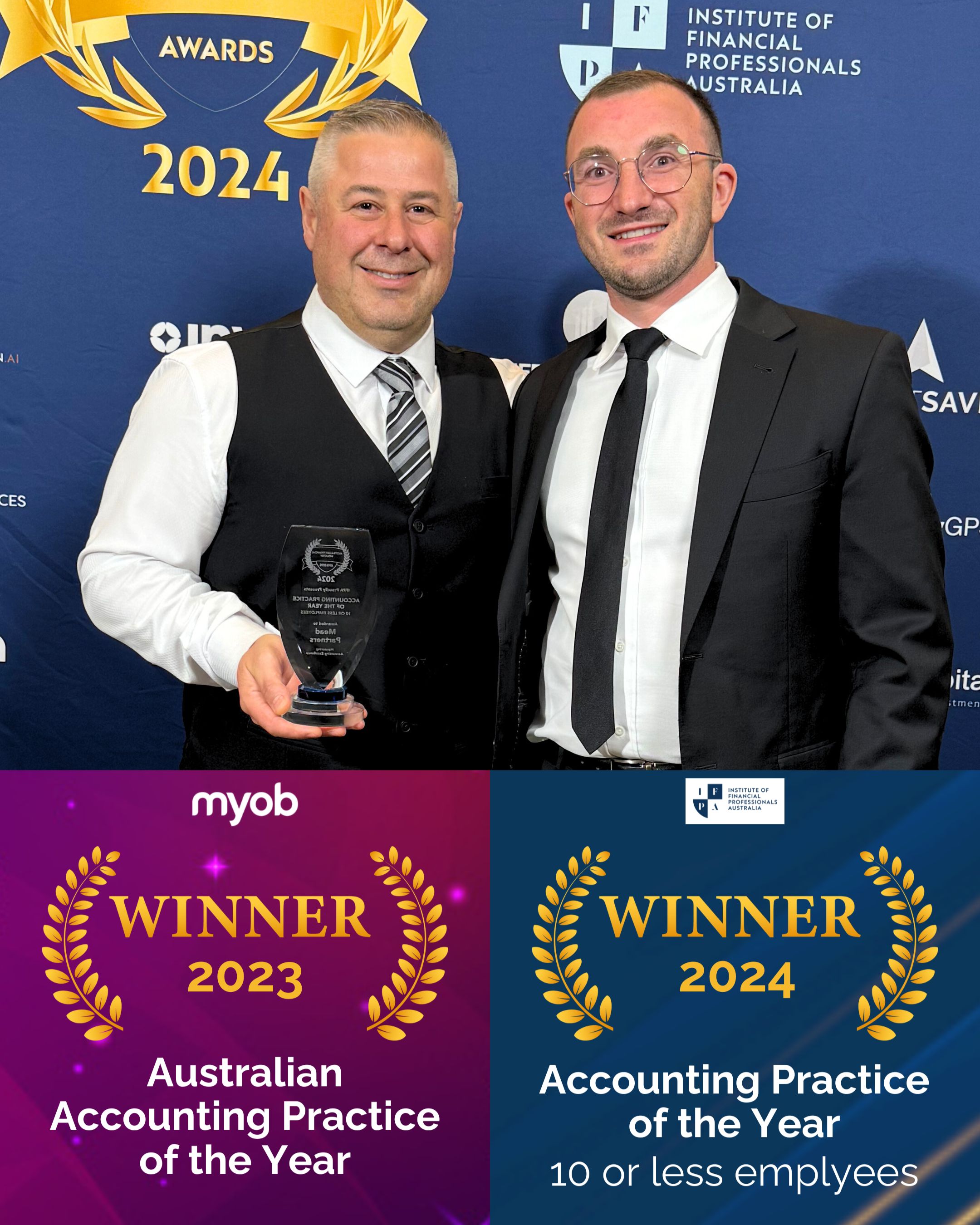
Book a Free Consultation!
✅Builders CFO Program
✅Business Improvement Program
✅Taxation Advice

The new year: a time to reflect and reset, setting goals for the year ahead. While many of us set personal new year resolutions, when was the last time you did the same for your business?
Here’s 10 new year resolutions to help you create a growth mindset for the year ahead from our business advisory team.
1. Reflect on what worked (and what didn’t)
Before you start 2023, take time to reflect on the past 12 months and check-in with last year’s goals.
“While we usually push hard in December to tick items off, it’s easy to lose focus come the new year,” said Partner Shaun Borg.
During your reflection ask yourself three key questions:
- What worked well?
- What didn’t work well?
- Where do I want to be in 6 or 12 months?
“These questions can help revise your targets and set better goals. It can also help you uncover what might be holding you back and what strengths you can harness for the year ahead,” said Shaun.
2. Get business goals out of your head
As a business owner, it can be easy to keep your goals tucked away in your head. However, there’s power in bringing them out of your head and into the real world.
“As they say: Out of sight, out of mind. Even having your goals saved on a spreadsheet or in a strategy document can make them invisible,” said Partner John Pititto.
“But writing your goals down – and sharing them – is very powerful. Put them somewhere visible where you can see them regularly (or daily). Share them with your business advisor, your mentor or wider team. This keeps your goals front of mind.”
3. Create a team-wide focus
Involve your team in the goal setting process to create company wide alignment.
“Share your goals with your team, putting them somewhere everyone can see them. This not only helps you keep focused as a team but keeps you all accountable, as you’re agreed to work on these goals together,” said Shaun.
“As part of this process, define what projects or tasks need to be completed to achieve each goal. When there’s no movement or progress, it’s an opportunity to dive into why and solve it together.”
This also helps you create better team culture, with each team member able to see how their contribution fits into the bigger business picture.
4. Keep yourself accountable
One of the biggest reasons businesses don’t achieve their goals is when there’s no accountability.
“If there’s no one to keep you accountable, it’s easy to make excuses or put them in the too hard basket,” said John.
While sharing the goals within your team is important, sharing them with someone externally is key. This could be to your business advisor, a personal mentor, or even to your family.
“You then have someone that will check in and ask: How are you going? You said you’d achieve goal 1, 2 and 3 90 days ago. Where are we at with that? It also makes it more real.”
5. Regularly check in and review goal completion
Goals that are set and forgotten until the end of the year will usually end one way: incomplete.
“Just as you reflected on your goals at the start of the year, continually check in and assess your progress,” said John.
“Have goals that aren’t progressing? Don’t be afraid to ask yourself what could be blocking your progress. Is it something internal – such as a process, resources or a team member? Or is it external? Then put steps in place to move forward.”
6. Celebrate progress, no matter how small
Throughout the year take the time to celebrate your progress.
“You’ve brought your team together to work on your goals for the year. When you get to the end of the week or month and you’ve made progress, celebrate as a team!” said Shaun.
“In our office, we have a bell that people ring when they complete a project or task listed for the year. While a small thing, it lets everyone in the office know we are one step closer, and gives us an opportunity to stop and celebrate as a team.”
7. Get your cash flow under control
It’s easy to become complacent over the holidays and not think about what cash you need for the year ahead.
“It can be very tempting – especially when on holiday – to use your business account as a personal ATM. Come January or February, you suddenly don’t have the cash you need,” said Partner John Pititto.
By understanding your financial position and regularly forecasting, you can better manage your cash and prepare for upcoming liabilities.
“This is where having someone such as a business advisor or trusted accountant can really help, providing you that much needed finance and cash flow insight.”
8. Focus on plugging those business holes
Goals don’t always have to be big or business changing. Sometimes it can be a quick win or something that needs to be fixed or improved to unlock more opportunities.
“Your goals don’t always have to be introducing a new product, changing a service or unlocking a new market,” said Partner Shaun Borg.
“Sometimes we need to focus on plugging business holes that are costing us money, driving inefficiency, or draining time and resources. Plugging these holes could unlock productivity, improve your cash flow or simply build a more solid foundation for future growth.”
By assessing what’s holding you back and identifying potential business risks, you can set goals that could potentially sink your business ship.
9. Set realistic milestones and timelines
You’ve set your goals, have got your team behind you, and shared them with others to make you accountable. What next?
“It’s human nature to procrastinate. That’s why it’s important to set timelines and milestones for your goals,” said Shaun.
“Without it, we can get caught up in the day to day of business. Then, come January next year we’ll have incomplete goals that never got off the ground. Setting these dates up front makes us accountable and gives us the drive to move forward.”
10. Keep tasks aligned with your business goals
As a business owner, it’s easy to work in the business (dealing with the day to day) and not on your business. The result? No growth or movement towards your goals.
“Sometimes we focus so much on surviving or on tasks that are off the beaten track to our goals,” said John.
Review your tasks regularly and ask: Are these going to help me reach my goals? If they aren’t, are they required or just need to get done?
“If the tasks are required but not aligned to your business goals, think about how you can delegate them and don’t be afraid to outsource if you don’t have the in-house expertise. If admin tasks are piling up, can someone in your team help? If accounting isn’t your thing, could one of our dedicated accountants assist? This will free up your valuable time.”
This will help you keep your efforts focused on growing your business – not just working in it – and support you reaching your goals for the year ahead.
About John Pititto
For over 20 years, John has been helping businesses – big and small – build a better business and create business freedom. As a Chartered Accountant and business advisor, John is all about relationships and getting to know your business inside and out. The result? Tailored advice focused on you and your goals. A devoted family man, when not in the office John loves spending time at the beach with his wife and three children.
Learn more about John and the MEAD Partners team
About Shaun Borg
Joining the Mead Partners family over 14 years ago, Shaun is a business partner and chartered accountant. He’s passionate about helping businesses maximise their potential, providing expert accounting and business advice to reach their business goals. In 2019, Shaun was also named the youngest MYOB accountant of the year. When not crunching the numbers, you’ll find Shaun out in the great outdoors.

Send To Someone